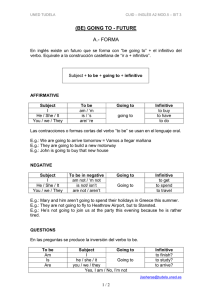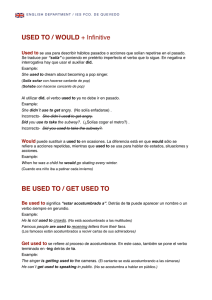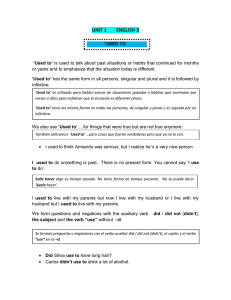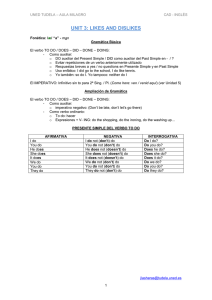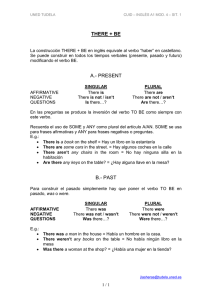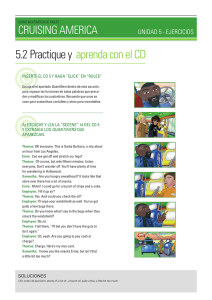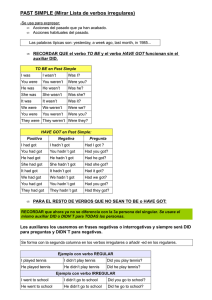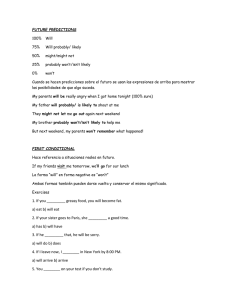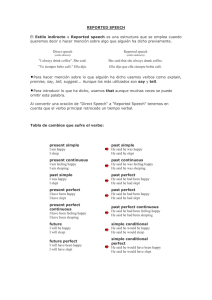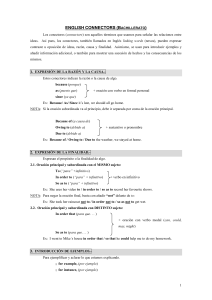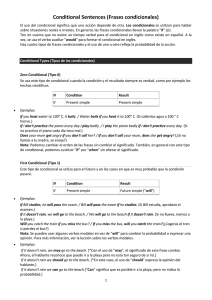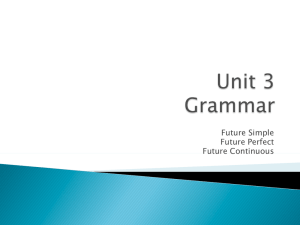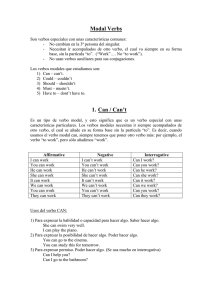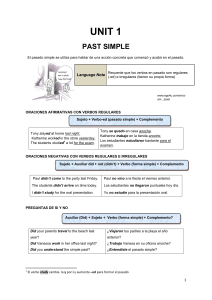CONDITIONAL SENTENCES
Anuncio
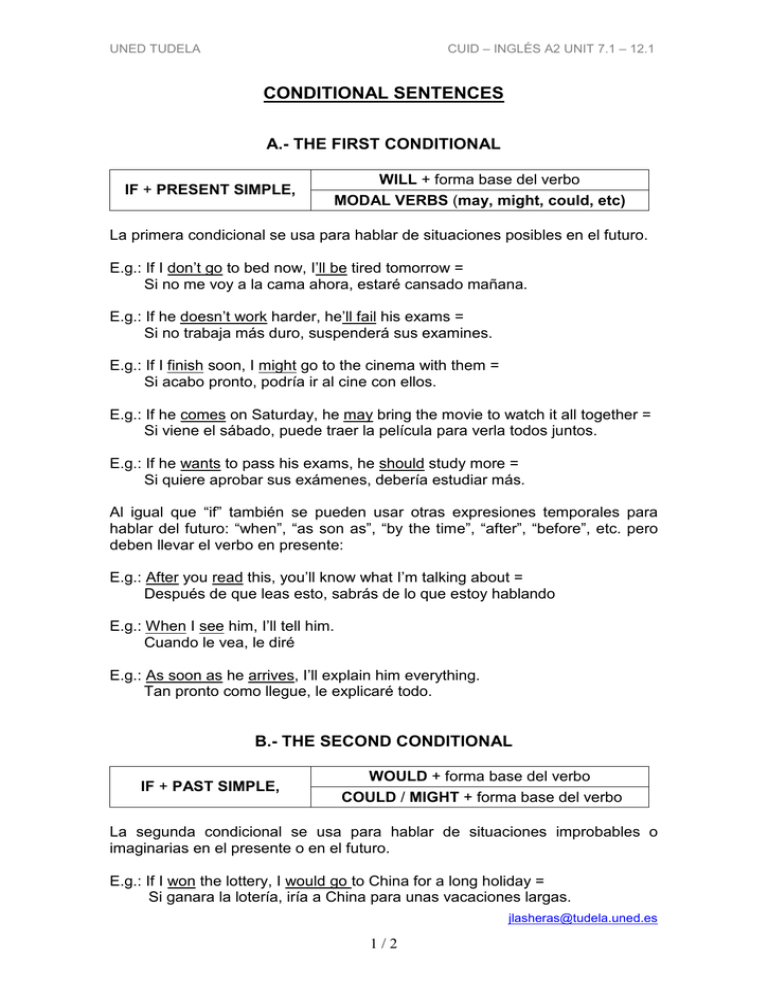
UNED TUDELA CUID – INGLÉS A2 UNIT 7.1 – 12.1 CONDITIONAL SENTENCES A.- THE FIRST CONDITIONAL IF + PRESENT SIMPLE, WILL + forma base del verbo MODAL VERBS (may, might, could, etc) La primera condicional se usa para hablar de situaciones posibles en el futuro. E.g.: If I don’t go to bed now, I’ll be tired tomorrow = Si no me voy a la cama ahora, estaré cansado mañana. E.g.: If he doesn’t work harder, he’ll fail his exams = Si no trabaja más duro, suspenderá sus examines. E.g.: If I finish soon, I might go to the cinema with them = Si acabo pronto, podría ir al cine con ellos. E.g.: If he comes on Saturday, he may bring the movie to watch it all together = Si viene el sábado, puede traer la película para verla todos juntos. E.g.: If he wants to pass his exams, he should study more = Si quiere aprobar sus exámenes, debería estudiar más. Al igual que “if” también se pueden usar otras expresiones temporales para hablar del futuro: “when”, “as son as”, “by the time”, “after”, “before”, etc. pero deben llevar el verbo en presente: E.g.: After you read this, you’ll know what I’m talking about = Después de que leas esto, sabrás de lo que estoy hablando E.g.: When I see him, I’ll tell him. Cuando le vea, le diré E.g.: As soon as he arrives, I’ll explain him everything. Tan pronto como llegue, le explicaré todo. B.- THE SECOND CONDITIONAL IF + PAST SIMPLE, WOULD + forma base del verbo COULD / MIGHT + forma base del verbo La segunda condicional se usa para hablar de situaciones improbables o imaginarias en el presente o en el futuro. E.g.: If I won the lottery, I would go to China for a long holiday = Si ganara la lotería, iría a China para unas vacaciones largas. [email protected] 1/2 UNED TUDELA CUID – INGLÉS A2 UNIT 7.1 – 12.1 E.g.: If I had more Money, I would buy a bigger house. = Si tuviera más dinero, compraría una casa más grande. E.g.: If they came on time, he might go to the party. = Si vinieran a tiempo, podría ir a la fiesta. En estas oraciones de la segunda condicional, el inglés formal suele emplear “were” para todas las personas del verbo “to be”. Si no nos expresamos de manera formal, el verbo “to be” se conjuga normalmente excepto en la expresión “if I were you+” que es la formula típica para dar consejos. Se suele traducir esta expresión por “si yo fuera tú>” o “yo en tu lugar>” E.g.: If I were rich, I would move to a different neighbourhood. Si yo fuera rico, me mudaría a un barrio diferente. E.g.: If he were here, he would lend me the money Si estuviera aquí, me prestaría el dinero. E.g.: You look tired, if I were you, I’d go to bed now Pareces cansado, si yo fuera tú, me iría a la cama ahora. C.- CUESTIONES GENERALES PARA LAS CONDICIONALES • La oración de “if + clause” puede ir la primera seguida de una coma o la segunda sin coma. E.g.: If he works hard, they will promote him 1 2 E.g.: They will promote him if he works hard (sin coma) 2 1 • “UNLESS” puede ser empleado en lugar de “IF NOT”. Significa “si no”, “a menos que”, “a no ser que”. E.g.: If you don’t change your mind, I won’t be able to help you Si no cambias de opinión, no podré ayudarte Unless you change your mind, I won’t be able to help you A menos que cambies de opinión, no podré ayudarte. [email protected] 2/2
